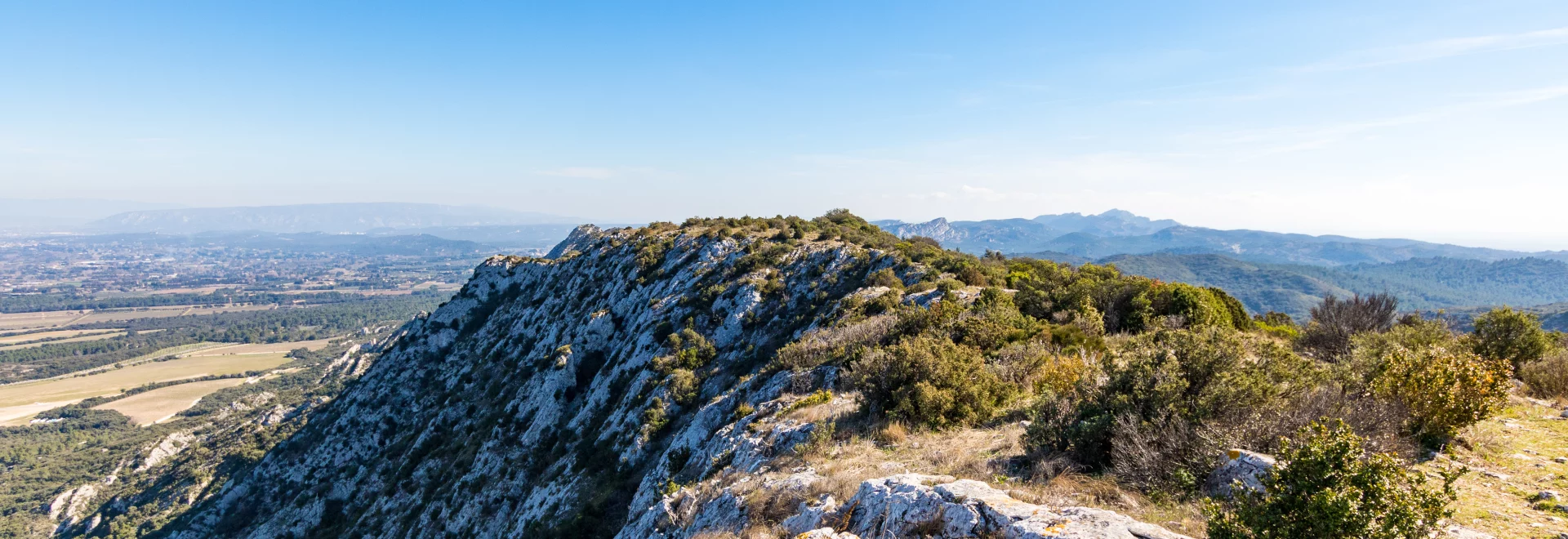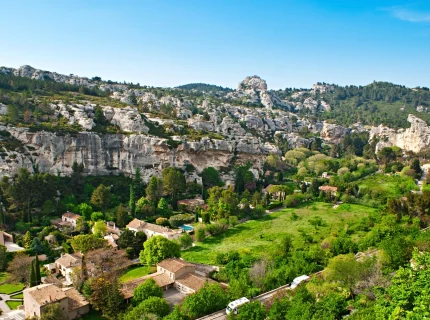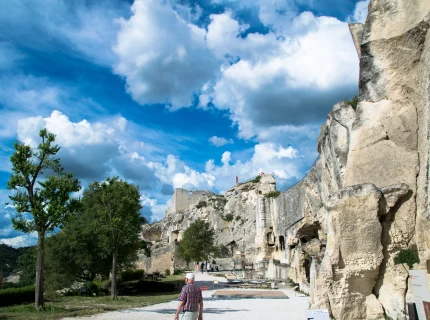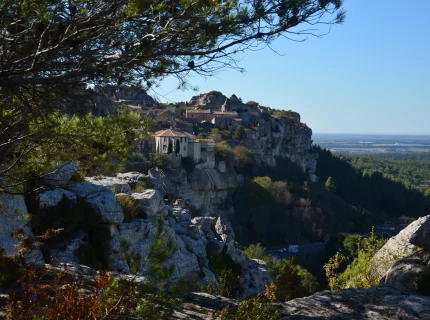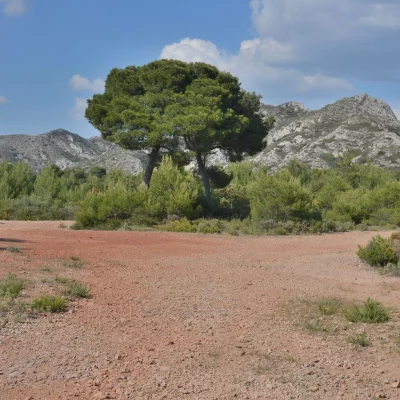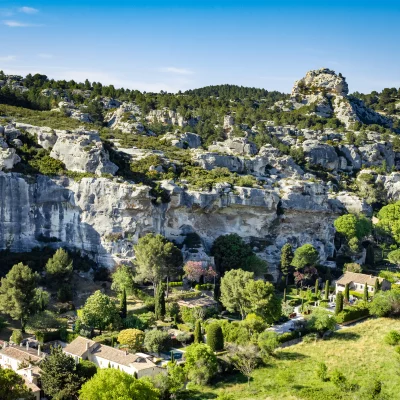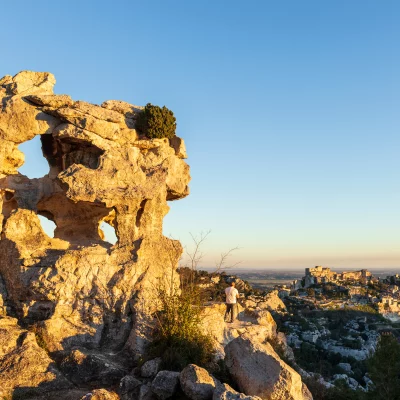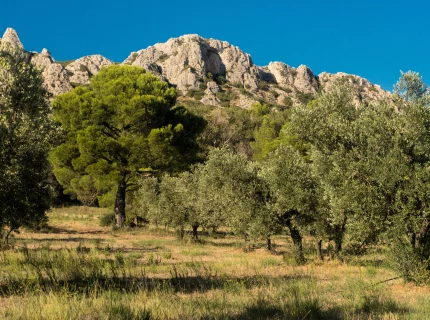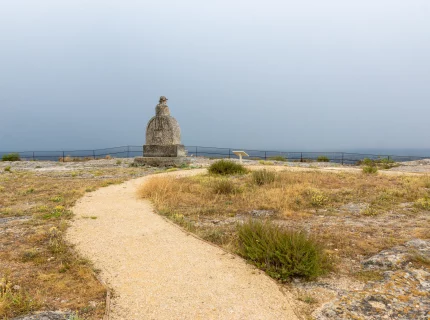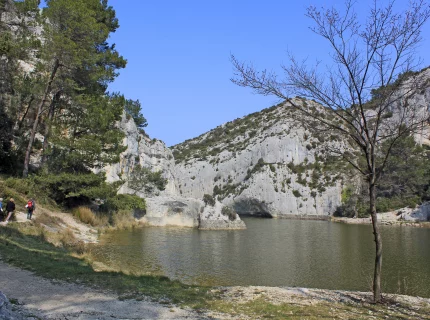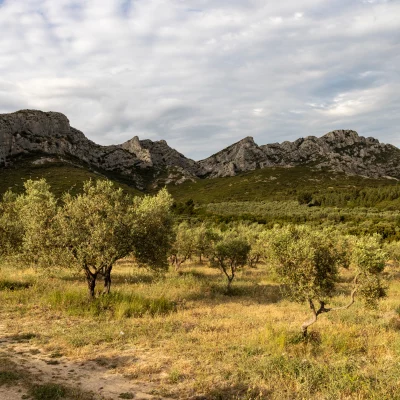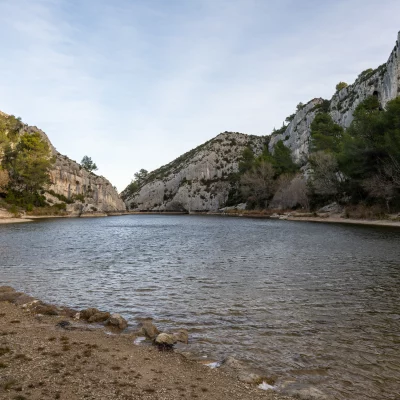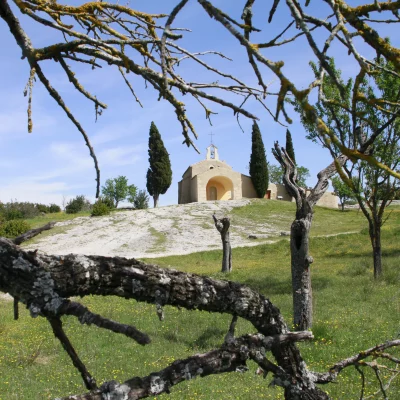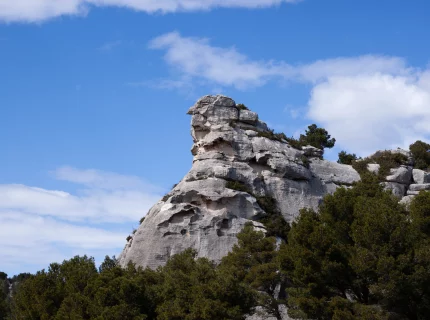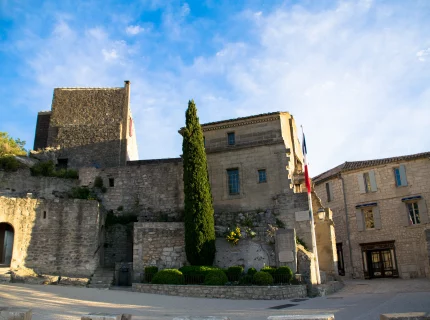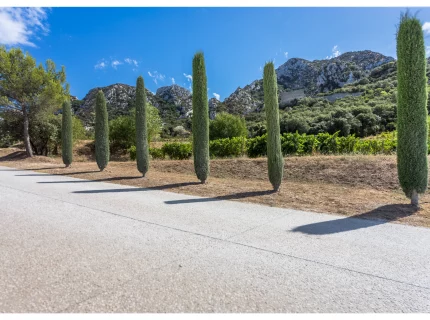Located just a few kilometers from the Camargue, the Parc Naturel Régional des Alpilles offers a breath of fresh air in the heart of typical Provencal landscapes. With its limestone hills, pine forests and olive groves, this protected area will appeal to lovers of nature and heritage. Dotted with signposted footpaths, it invites you to hike, mountain bike or simply contemplate, against the backdrop of hilltop villages such as Les Baux-de-Provence and Saint-Rémy-de-Provence.
It’s also a haven for exceptional wildlife, including Bonelli’s eagle and eagle owl. Staying at Le Clos du Rhône campsite gives you easy access to this exceptional park, while enjoying the comfort of seaside accommodation. It’s the ideal opportunity to alternate between discovering Provencal nature, swimming in the Mediterranean and exploring the rich local terroir. A well-balanced holiday combining relaxation, culture and immersion in nature.
Discovering the wild Alpilles
Visit the Parc Naturel Régional des Alpilles in Camargue
Nestled between the Crau plains and the Rhône valley, the Parc Naturel Régional des Alpilles offers total immersion in Mediterranean nature. Just a few kilometers from our campsite, this unspoilt area is a delightful blend of landscapes, ecological wealth and remarkable natural heritage. Composed of limestone ridges, pine forests, olive groves and vineyards, the park is home to typical Provencal flora and fauna. It’s a mecca for biodiversity, combining environmental protection with local development.
The soul of Provence in the heart of Alpilles
Take advantage of your visit to the Alpilles to stay at a campsite in the Camargue
Our Camargue campsite is at the gateway to the Parc Naturel Régional des Alpilles, ideal for discovering the treasures of this emblematic region. Whether you’re a hiking enthusiast, a history buff or simply looking for peace and quiet, the Alpilles offers a rewarding getaway for all holidaymakers. The park is dotted with signposted hiking trails, accessible on foot or by bike, taking you through the typical landscapes of southern France. An outdoor holiday between the Alpilles and Camargue offers the perfect balance between nature and culture.
Nature and culture at the heart of your vacation
The natural and cultural attractions of the Parc Naturel Régional des Alpilles
Visitors to the park can admire breathtaking panoramas of limestone massifs, lush green valleys and perched villages, ranked among France’s most beautiful villages. Saint-Rémy-de-Provence and Les Baux-de-Provence are emblematic examples. This landscape heritage is accompanied by a rich historical legacy, including Gallo-Roman remains, medieval chapels and traditional mills. Cultural heritage here is closely linked to rural life and local farming practices. A visit to the park is also an opportunity to discover local products, such as the PDO olive oil of Les Baux-de-Provence and the region’s renowned wines.
Active discovery to the rhythm of the nature park
Hiking and wildlife watching in the Alpilles
The Alpilles is a prime destination for hiking enthusiasts. Numerous signposted itineraries allow you to explore the park at different levels of difficulty. The trails pass through a variety of natural areas, from pine forests to rocky ridges, offering spectacular vistas. It’s also a prime site forwildlife observation: Bonelli’s eagles, eagle owls, kestrels and other protected species have found refuge here. Thanks to the park’s charter, protection of the natural environment is guaranteed, while allowing the public to enjoy the beauty of the area.
Active discovery to the rhythm of the nature park
How to get to the Parc Naturel Régional des Alpilles from the campsite
From Camping La Brise, located on the edge of the Camargue, access to the park is easy. By car, it takes about an hour to reach Saint-Rémy-de-Provence, the heart of the park. Day trips can also be organized to discover the alpine scenery while enjoying the comfort of camping accommodation. Our team is on hand to advise you on the best tours and help you plan your outings in this unique natural setting in the Provence-Alpes-Côte d’Azur region.

